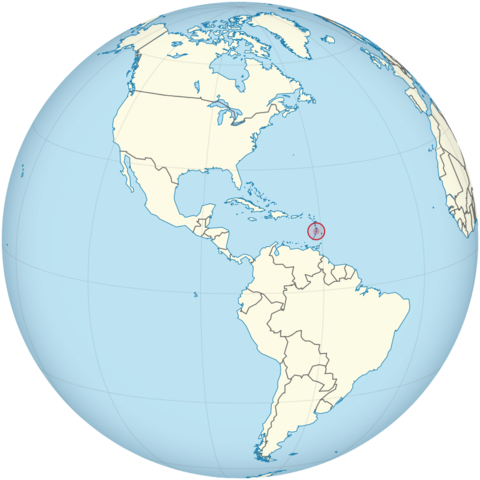 Today we will be looking at Saint Luc- err… Sorry, Saint Vincent and the Grenadines.
Today we will be looking at Saint Luc- err… Sorry, Saint Vincent and the Grenadines.
Mostly known for the shoe-box banks Loyal Bank and the aptly named Euro Pacific Bank, being neither in Europe nor the Pacific.
While the official ISO-3166 alpha-3 shorthand is VCT, the long Saint Vincent and the Grenadines is often shortened to SVG.
Overview
In the article about Saint Lucia, I mentioned that these IBC jurisdictions are almost indistinguishable. SVG is no different in that regard.
This is another barely distinguishable, poor Caribbean island nation trying to pad its diminishing government coffers by establishing a bare-minimum-regulations financial services sector.
Fortunately for SVG, its sector has not grown anywhere near it’s hoped size. Why? Because the authorities, spearheaded by the SVGFSA, are woefully unprepared, understaffed, and incompetent. The amount of money laundering that could take place in SVG is tremendous. This is in spite of its rather prestigious Largely Compliant rating from OECD.
A painful example, which I will get back to later, is the regulatory fiasco surrounding Loyal Bank. The SVGFSA proved completely unable to communicate on the matter in an appropriate manner.
The jurisdiction conveniently passes financial regulation around like an Olympic torch between SVGFSA, its ministry of finance, its barely held together FIU (SVGFIU), and its multi-jurisdictional central bank, the East Caribbean Central Bank (ECCB).
Geography and Demography

Map from Wikipedia.
;
Full Name:;Saint Lucia
Official language(s):;English
Other major languages:;Saint Lucian Creole, French
Type of government:;Parliamentary democracy
Area:;617 km²
Timezone:;UTC-4
Population:;173,000
GDP per capita:;8,000 USD
Currency:;East Caribbean Dollar (XCD), pegged at 1 USD = 2.7 XCD
[/table]Incorporation and Business
Reputation
SVG is a very small and little-known jurisdiction for incorporation and businesses. It is neither as bad for example Belize or Seychelles nor as good as Hong Kong – it’s simply unknown.
At the end of the day, an IBC is an IBC. It’s still a problematic company type in and of itself due to the strict secrecy and lax standards of compliance.
As mentioned in the overview, the SVG authorities are not prepared for a rapid increase in incorporation which likely puts the jurisdiction at risk of money laundering. This could damage the jurisdiction’s reputation, but is strictly hypothetical at this point.
There are no signs of SVG’s offshore sector seeing any noteworthy growth, though.
General Information
As mentioned, it’s a traditional IBC jurisdiction. It enacted its first IBC legislation in 1996 but replaced that law with a new one in 2008. The new version borrows heavily from BVI. It also included an LLC legislation.
Costs of incorporation are mid-range but there is a rather limited supply of registered agents, which hasn’t created a particularly healthy competition.
Regulator
Ultimate responsibility falls on the Ministry of Finance with oversight and some enforcement provided by SVGFSA and the SVGFIU.
International Business Company (IBC)
- One director required. Corporate directors permitted.
- One shareholder required. Corporate shareholders permitted.
- No paid up share capital required (usually 50,000 USD authorized).
- Registered address in SVG required.
- No audit or filing required unless the company opts for it or opts for taxation.
- Bearer shares are not permitted but must be deposited with a custodian (the registered agent).
Taxation
IBCs can opt in for a tax rate of 1%. Otherwise, IBCs are assigned an automatic 25 years long exemption from taxation.
Limited Liability Company (LLC)
- One member required. Corporate directors permitted.
- No paid up capital required (usually 50,000 USD authorized).
- Registered address in SVG required.
- No audit or filing required unless the company opts for it or opts for taxation.
Series LLCs are permitted.
Taxation
Unless opting for 1% corporate tax, LLCs are pass-through entities with no taxation applicable (for 25 years from incorporation). Members are only taxed on personal income, which means zero taxation in SVG for non-residents. However, the members should confirm whether their jurisdiction of residence consider the LLC a resident, taxable entity.
Public Records
Company name only. Directors, shareholders, and members are not known to the company registry.
Saint Vincent and the Grenadines Trust
Run-of-the-mill trust jurisdiction. Sometimes used in conjunction with IBCs to form what’s sometimes called a hybrid trust, whereby a trust (which isn’t an entity) takes on an entity-like shape to obtain personhood in jurisdictions that do not recognize trusts. It’s not unique to SVG but it’s worth mentioning here because some of the most aggressive service providers are marketing it heavily.
Fraudulent conveyance has a limitation of two years and any claims against fraudulent conveyance are subject to a 25,000 USD deposit with the SVG courts before being investigated.
Costs are generally low, but would-be settlors may be wise to question the actual need for a trust if trust formation costs are a major factor.
Service Providers
There are 16 service providers in SVG. The SVGFSA has a list of them all.
Banking
Generally unimpressive if not downright bad. I am continuously puzzled by why people choose to bank in SVG.
Loyal Bank
This bank helped cement SVG as a poorly regulated jurisdiction when it lost correspondent accounts for several months, leaving clients stranded. The bank tried and failed over and over to establish means to enable international wire transfers but no one wanted to work with this sketchy shell bank for fear of regulatory complications.
What happened with Loyal Bank?
Let me take you on a journey, which starts in the summer of 2013. For reasons that would take too long to explain in-depth here, a number of large banks were scrutinizing offshore banks for which they were offering correspondent banks. In short and greatly simplified, if you aren’t licensed by a central bank or similar in a jurisdiction, you need to rely on a third party to hold that jurisdiction’s currency – for example USD, GBP, EUR, CHF, AUD, CAD, NZD, and so on.
Loyal Bank is only licensed in SVG, whose currency it is not permitted to hold. This means they are 100% reliant on other banks in order to actually function like a bank. This is not unique to Loyal Bank. This is the case with all of these little offshore banks.
What sets Loyal Bank aside from many others is their complete disregard for international standards of compliance. As long as you could spell your name correctly, they would open an account for you. Unless you specifically told them that you were involved in criminal activities, they would let anyone in.
Summer 2013 the ripples of the regulatory and investigative repercussions to large-scale money laundering scandals across major banks reached correspondent banking. Banks such as Commerzbank, Deutsche Bank, Bank of America, JPMorgan Chase, and BNP Paribas started looking banks in high-risk jurisdictions for which they provide correspondent accounts.
Loyal Bank was eventually investigated and and the bank’s name became toxic. The aforementioned disregard for compliance meant the bank had several surreptitious characters on its client roster, and many companies for which it did not know the UBO. And starting in the winter of 2013, everyone kicked out Loyal Bank.
Another big factor was that banks simply weren’t making enough money on correspondent accounts like Loyal Bank’s, relative to the risk posed.
Clients were stranded. The SVGFSA did absolutely nothing to help. Frustrated investors who reached out to SVGFSA were fed empty promises, vague responses, or silence. The SVGFSA was not prepared for this. Suddenly – for the first time in their careers – they had to do more than sit around and collect license fees.
The bank tried to establish new correspondent accounts but being an offshore bank operating out of a bad part of Budapest, Hungary, this was very difficult. They resorted to using non-bank financial institutions such as Earthport to process funds.
Wire transfers take weeks to effectuate and require manual submission of a PDF.
Euro Pacific Bank
And now for one of the most popular banks with low-networth offshore investors.
Euro Pacific Bank (or EPB) bank is formed and ultimately controlled by Peter Schiff, whose career spans stock-brokerage, financial analysis, and banking. He is also a politician and loves being in the media spotlight
Upon launch, the bank was vulnerable to an extremely simple form of hacking where any user with an approved account could view the transactions, balances, and customer information of all Euro Pacific Bank customers by simply modifying the URL of the online banking website. To the bank’s credit, the issue was resolved quickly. To the bank’s discredit, they let something as simple as this pass.
To be fair, banks get hacked. For example, JPMorgan Chase was hacked in 2014 and over 80 million account records were compromised. It happens. Just not as easily as EPB.
As if that wasn’t bad enough, Euro Pacific Bank for some unthinkable reason shows client’s application documents upon logging in to the bank, which requires only a username, password, and a bare-bones captcha. There is no password retention policy and passwords are constrained.
Once logged in, you can download the notarized passport copy, utility bill, and company documents you uploaded to the bank when applying for the account. Identify theft is a brute-force attack or credentials leak away. Again, this isn’t conceptually unique to EPB but the ease and massive vulnerability vector are unique to EPB. No currently operating bank of comparable size and customer reach does this worse.
This combined disregard for security and privacy is almost unfathomable.
Every Other Bank in SVG
Not even worth talking about.
Banking Secrecy
It’s the same as all other IBA jurisdictions:
In theory, the secrecy is rigorous.
In reality, SVG lacks any tradition of secrecy and privacy.
Vincentian authorities are empowered to compel banks to disclose information without a court order, and share this information with foreign authorities.
Living in Saint Vincent and the Grenadines
Similar to Saint Lucia, SVG offers no particular tax benefits beyond an absence of capital gains tax.
Life in SVG can be very comfortable. It is socially and politically mostly stable. Infrastructure is poor, though, but that might be a worthwhile trade-off to live in a place like this.
Final words
Just another IBC/IBA jurisdiction.
No major reputational disadvantages that would set it aside from its peers, except it’s relatively unknown.
The SVGFSA is probably one of the most useless regulators in the industry. It has failed to offer any sense of trust and security to any investors.
See also
- OECD Peer Review (also has a list of TIEA and DTA)
- Financial Secrecy Index
- FATF documents
- CFATF documents
Click here to see all Jurisdiction Spotlight articles.
In the “Geography and Demography” looks like you’ve used the incorrect information for this “Jurisdiction Spotlight”.
I know that you mentioned that there are not overly favourable tax advantages to living in St. Lucia and similarly in St. Vincent, however I don’t beleive this is the case. If you own an IBC and reside in St Lucia for example you can distribute your profits from the IBC’s as dividends. All dividiend payments in St. Lucia are non-taxed whether you’re a resident or otherwise.
About EuroPac, Petter Schiff is a scammer… One day all will come down… Don’t let this guy put his hands on your money…
I believe he is too “visible” to disappear in one day.
However, Euro Pacific Bank can easily follow Loyal Bank way, ending up with correspondent accounts somewhere in Gambia and thousands of angry customers.
Maybe it is worth noting that SVG IBCs are often used by sketchy Forex brokers, that can’t afford to obtain license or do not want to be regulated in any way, because of no legislation on FX services.